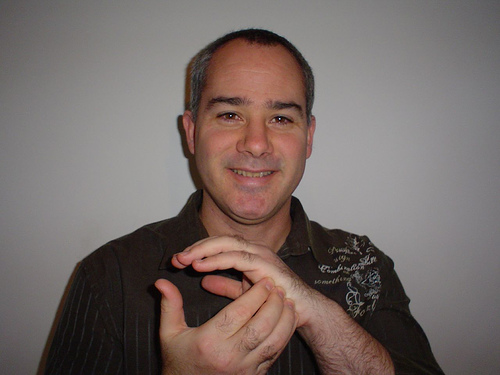The Four Horsemen Of The Relationship Apocalypse
Many moons ago, I heard about a researcher who’d figured out how to predict with 94% accuracy whether a marriage would end in divorce.
Needless to say, this immediately piqued my curiosity (not 93%, not 95%, but 94%? Turns out, it was actually 93.6%)
I read a bit further, and his basic approach was this:
- He’d invite couples into his lab
- They would write down half a dozen issues they could never agree on
- He start a video camera
- He’d then pick an issue and they’d talk about it
After 15 mins, he’d stop the camera, and almost universally the response would be “What?!? It can’t have been fifteen minutes. We only just got started.”
See, what he realised was – in terms of relationship survival, it doesn’t really matter how we are when everything’s going well. What really matters, long term, is how we behave when things turn to shit.
And the issues that would provide constant pressure throughout a relationship were those things that could never be resolved. Your mother is an ogre and makes his life a misery. He lives for football and you can’t stand it. You know, the basics.
What Dr John Gottman discovered was that there were four attributes that indicated almost universal death for any relationship.
He named these behaviours “The Four Horsemen of the Relationship Apocalypse.”
They are (in no particular order):
Criticism
This is easy to spot. If you’re stating a complaint in terms of an attack on the other person, or a defect in their personality? That’s criticism. Giving the other person negative trait attributes is not constructive, it just escalates the conflict.
Here’s the secret: Telling people things that are shitty about them will never, ever make them change. It’ll make them hide those behaviours, or lie to you, or leave. Mostly though, it’ll just make them feel like crap.
You really want them to change? Praise them when they do the opposite thing, the thing you actually want.
The antidote to criticism is, if you have to raise an issue? Complain.
A complaint is about a specific event. It’s aimed at the action, not the person – and the difference is critical. Criticism is global, about the person’s character or personality.
CONTEMPT
Contempt is a bit more interesting. It turns out this is the single best predictor of divorce.
Contempt covers anything which expresses disgust for your partner. Some examples: eye-rolling, sarcasm, name-calling, condescension, mockery and hostile humour (“You’re such an idiot”).
The crazy thing? You can turn down the sound on a video of someone expressing contempt for their partner, and just count the contemptuous body language motions, and it will be an excellent predictor for how many infectious illnesses the receiving partner will experience in the next four years.
Contempt doesn’t just kill your relationship, it quite literally kills the other person too.
The antidote to contempt is appreciation. If you let everything else go in your relationship, and do nothing but appreciate the hell out of that person? That’ll fix almost anything. It’s incredibly powerful.
(No huge surprise to long time readers of this blog, of course: Love heals? Whodda thunk it?)
Here’s a great video on contempt:
DEFENSIVENESS
This is a knee-jerk response to criticism or complaint.
It’s a way of saying “it’s not me, it’s you.”
This is expressed through making excuses, shifting blame onto the other person, or denying responsibility. Defensiveness wards off a perceived attack.
The antidote to defensiveness is to accept responsibility (as ugly and difficult as that can be at times).
STONEWALLING
Stonewalling is a tough one. This is where one person more or less completely ignores the other. They emotionally withdraw from interaction; refuse to acknowledge the other person exists, let alone talk about an issue, and so on.
This generally only happens after a period of time, when one partner has “given up” or started to tune the other out completely.
The antidote to stonewalling is (pretty obviously) to engage. Any communication, even painful and shitty, is better than no communication at all.
Do I have anything more to add? Well Dr Gottman has spent forty years studying this stuff. His solutions (antidotes he likes to call them) are listed above in blue.
He also recommends three things to avoid in any fight:
- Saying “You never…”
- Saying “You always…” (because these are both blanket condemnations)
- Anything insulting or acting superior
Any of Dr Gottman’s videos are worth watching.
Other than that? All the usual. Don’t communicate via text, if you can possible help it. Be patient. Say less than you think. Heal everything.
Oh, and good luck. Take it one day at a time. Just try to be a little better today than you were yesterday. Over time, those little daily improvements add up to disproportionately powerful outcomes.


